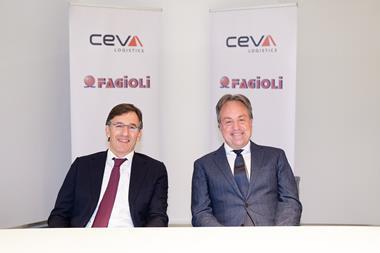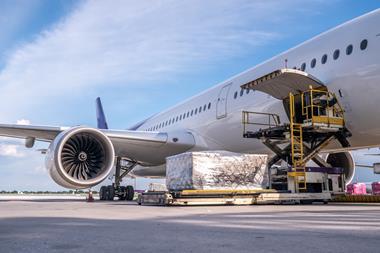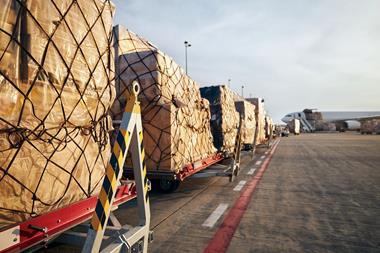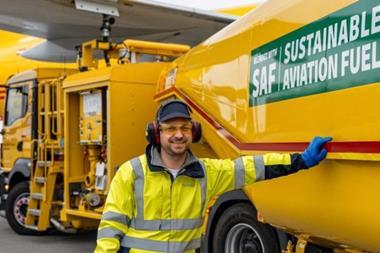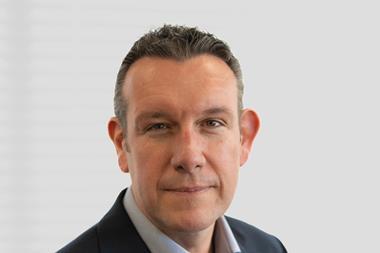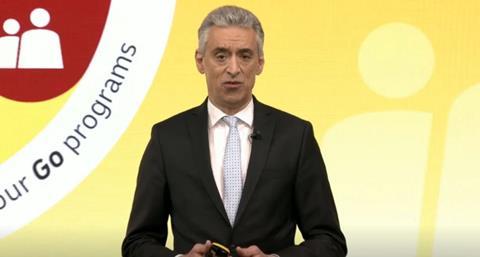
As part of its new sustainability roadmap, announced today, Deutsche Post DHL Group (DP DHL) is investing €7bn in green technologies, such as sustainable aviation fuel, to help it further reduce its Co2 emissions over the next ten years.
The sustainability roadmap, which covers the company's operations until 2030, are in addition to its target of achieving zero emissions by 2050 — first announced in 2017.
In a press conference today, Frank Appel, chief executive of DP DHL, said: "As the world's largest logistics company, it is our responsibility to lead the way and guide the logistics industry into a sustainable future. We are turning our yellow group into a green company and are making an important contribution to our planet and society."
The company is aiming to reduce its CO2 emissions from 33m tonnes in 2020 to under 29m tonnes by 2030. To achieve this, it will gradually operate its vehicles and buildings more sustainably.
For example, by 2030, it aims for at least 30% of fuel requirements in its aviation and line haul operations to be covered by sustainable fuels.
The company is already running pilot projects using sustainable aviation fuel (SAF) blends in Amsterdam and San Francisco.
Appel said: "Sustainable, clean fuel alternatives are elementary for climate-neutral logistics in a globalised world. In air transport in particular, these could help reduce CO2 emissions. That's why we will engage even more intensively in initiatives and strengthen cross-industry exchange to develop a global strategy and standards here. One thing is certain: only by joining forces — across countries and sectors — will we achieve truly sustainable progress in all areas."
Meanwhile, DHL aims to make 60% its fleet of delivery vehicles — around 80,000 of them — electric by 2030.
Appel added: "Two thirds of our CO2 emissions come from aviation; ground transportation is only 20%. We will therefore make faster progress in making our ground fleet more sustainable and our medium-term issue to tackle is aviation."
The company will also optimise fuel consumption in the air by using artificial intelligence, data analytics, and other tools that it is already using across its business.
"Our vehicles at airports can also be used more effectively to help reduce our aviation carbon footprint," said Appel.
Additionally, the company aims to make all of its newly designed buildings carbon neutral, going forward. It will also offer green alternatives for all of its core products and solutions.
DHL opens new Malpensa hub as it looks to expand in Italy
Air cargo and e-commerce help DP DHL to record earnings
Leisure airline Condor to operate PAX-freighter flights for DHL
In addition to its environmental targets, the company also outlined its social goals.
For example, highlighting the importance of diversity and inclusion within the company, DHL aims to increase its share of women in middle and upper management positions from 23.2% in 2020 to 30% by 2025.
Thomas Ogilvie, chief human resources officer and labour director at DP DHL, said: "Our motivated diverse workforce is the key to excellent service quality and high customer satisfaction. Satisfied customers are the basis for economic success. This is another reason why we are convinced that it is worth actively promoting equal opportunities."
The company also wants to maintain an employee engagement score of at least 80% in its annual global employee survey, and invest 1% of its net profits annually in its social impact programs and initiatives such as GoTrade, GoTeach and GoHelp.
The company's governance targets include implementing key performance indicators for its environmental, social and governance (ESG) targets; regular reviews of policies and guidelines; and an updated code of conduct for its suppliers, which reflects the company's new sustainability initiatives.
Appel said: "Covid-19 has once again reinforced the major megatrends of our time: globalization, digitalization, e-commerce and sustainability — the four drivers of our 'Strategy 2025'. Of these topics, sustainability is the most pressing challenge. With our sustainability roadmap, we are stepping up our efforts and explicitly promoting the Sustainable Development Goals of the United Nations."






